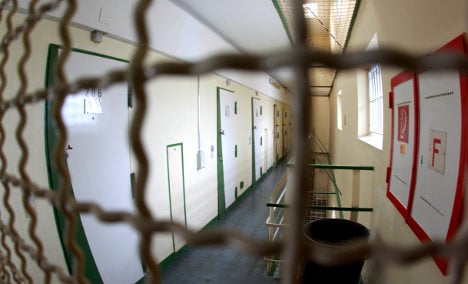Delegates at a conference on youth incarceration in Greifswald heard that increased staffing of the 29 juvenile detention facilities since 1994 had reduced the re-offending rate by nine percent.
“But many former criminals do not cope with their sudden freedom, are unsatisfactorily integrated into society and end up committing new crimes,” said criminology professor Frieder Dünkel at the conference. He said that up to 40 percent of re-offenders commit crimes serious enough to return to prison.
The major trouble identified by the academics at the conference was the lack of provision to help young criminals prepare for life on the outside.
A study by Greifswald University showed a reduction in young criminals being allowed holidays during their sentence, from 8.3 percent in 2006 to 5.8 percent last year, while day release programmes are only run in five of the 16 German states.
The restrictive practices result in young convicts being unable to find their way once they have served their sentences, said Dünkel.
The number of staff, social workers and psychologists employed in youth detention centres has increased over the last few years, so that on average each social worker takes care of 17 young prisoners now – in comparison with 31 four years ago. The number of probation officers has also increased.
But projects which help prepare young people for life after prison are still too thin on the ground, the conference heard.
Youth crime has become a hot topic in Germany in recent months, as a number of violent attacks particularly on public transport, have hit the headlines, with teenagers often being the perpetrators.
An 18-year-old was sentenced to nearly three years in prison last month for attempted manslaughter after kicking a man in the head as he lay defenceless on the ground in a Berlin metro station.
DAPD/The Local/hc




 Please whitelist us to continue reading.
Please whitelist us to continue reading.
Member comments